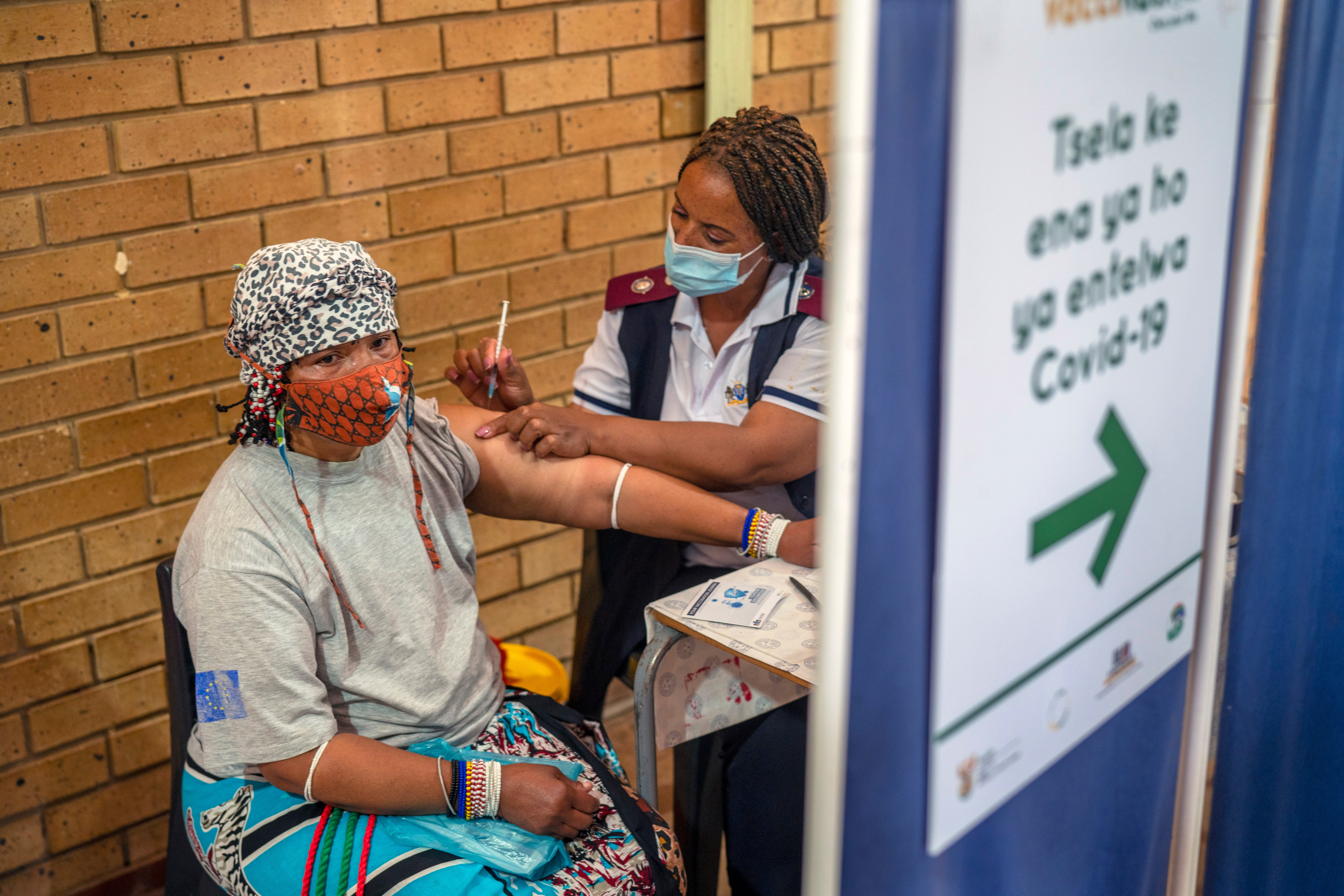Study suggests past COVID infection may not fend off omicron
South African scientists are warning that the new omicron variant may be causing more reinfections among COVID-19 survivors than earlier virus mutants

Your support helps us to tell the story
From reproductive rights to climate change to Big Tech, The Independent is on the ground when the story is developing. Whether it's investigating the financials of Elon Musk's pro-Trump PAC or producing our latest documentary, 'The A Word', which shines a light on the American women fighting for reproductive rights, we know how important it is to parse out the facts from the messaging.
At such a critical moment in US history, we need reporters on the ground. Your donation allows us to keep sending journalists to speak to both sides of the story.
The Independent is trusted by Americans across the entire political spectrum. And unlike many other quality news outlets, we choose not to lock Americans out of our reporting and analysis with paywalls. We believe quality journalism should be available to everyone, paid for by those who can afford it.
Your support makes all the difference.South African scientists are warning that reinfections among people who’ve already battled COVID-19 appear to be more likely with the new omicron variant than with earlier coronavirus mutants.
A research group has been tracking reinfections in South Africa and reported a jump with the arrival of omicron that they hadn't seen when two previous variants, including the extra-contagious delta variant, moved through the country.
The findings, posted online Thursday, are preliminary and haven't yet undergone scientific review. Nor did the researchers say what portion of the reinfections were confirmed as omicron cases — or whether they caused serious illness.
But the timing of the reinfection spike suggests that omicron “demonstrates substantial population-level evidence for evasion of immunity from prior infection," they wrote.
"Previous infection used to protect against delta and now with omicron it doesn’t seem to be the case,” one of the researchers, Anne von Gottberg of the University of Witwatersrand, said at a World Health Organization briefing on Thursday.
The study also did not examine the protection offered by vaccination. The vaccines trigger different layers of immune response, some to fend off infection and others to prevent severe disease if someone does become infected.
“We believe that vaccines will still, however, protect against severe disease," von Gottberg said.
The newest variant was discovered just over a week ago by scientists in South Africa and Botswana and it’s now been found in multiple countries. Much remains unknown about the new variant, including whether it is more contagious, as some health authorities suspect, whether it makes people more seriously ill, and whether it can thwart the vaccine.
But learning how much protection is provided by prior infection is important, especially in parts of the world where much of the population remains to be vaccinated.
The study suggests “omicron will be able to overcome natural and probably vaccine-induced immunity to a significant degree,” Paul Hunter, a professor of medicine at the University of East Anglia said in a written response to the findings. Just how much “is still unclear though it is doubtful that this will represent complete escape. ”